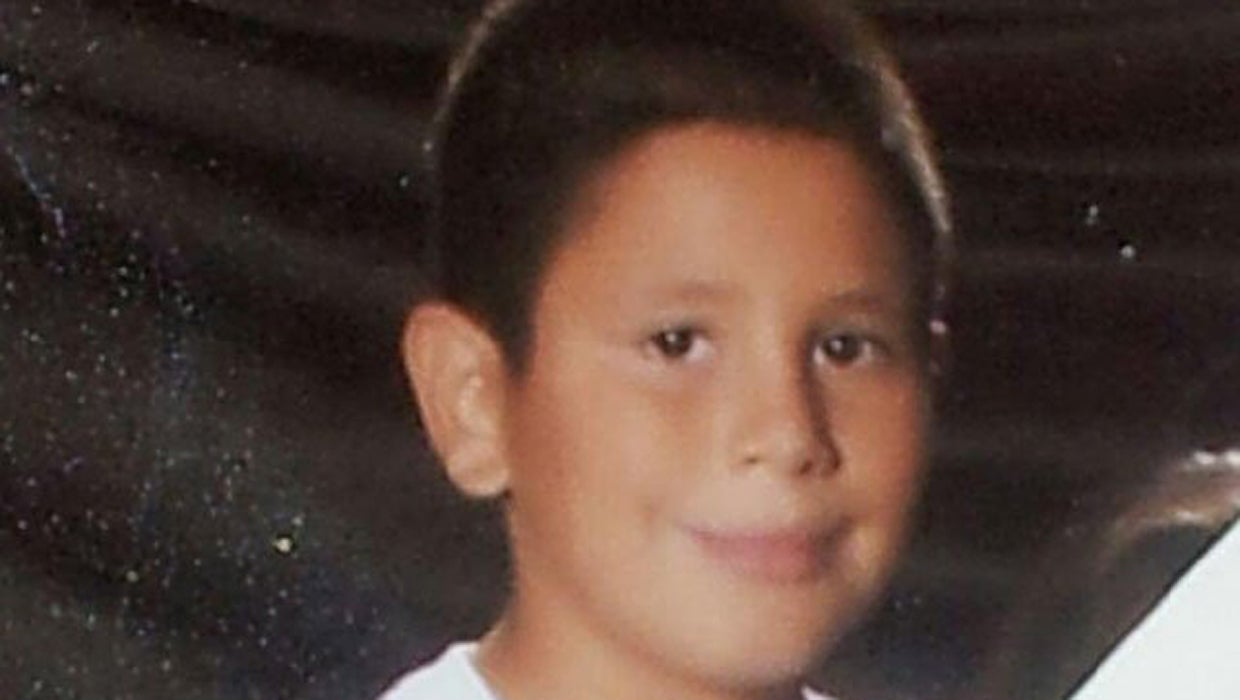Alex Madrid Case: Updates On The Murder Trial & Sentencing
Can a single act of violence shatter a community and irrevocably alter the course of multiple lives? The case of Alex Madrid and the tragic death of Claudia Lucero offers a stark and harrowing answer: Yes.
The events that unfolded in Mesa, Arizona, in December 2013, cast a long shadow, a testament to the devastating consequences of violence and the complexities of the legal system. The discovery of Claudia Luceros body, just two miles from her home, initiated an investigation that would unearth a web of betrayal, loss, and ultimately, justice, albeit a form of justice that would be forever colored by the irreversible nature of the crime. The details surrounding the case are chilling, a stark reminder of the fragility of life and the enduring pain of those left behind. The legal proceedings, the evidence presented, and the verdicts delivered have become a focal point for discussions about justice, punishment, and the lasting impact of violent crime on individuals and communities.
| Alex Anthony Madrid: Biographical and Professional Overview | |
|---|---|
| Full Name: | Alex Anthony Madrid |
| Age at Time of Arrest (December 2013): | 42 |
| Residence: | Mesa, Arizona |
| Profession: | Construction Worker (as reported at the time of arrest) |
| Relationship to Victim: | Estranged boyfriend of Claudia Lucero's mother |
| Criminal Charges: | Murder, Kidnapping, Sexual Contact with a Minor |
| Verdict: | Guilty |
| Sentence: | Death (as per Maricopa County Attorney's Office) |
| Key Events: |
|
| Reference: | AZFamily.com (for general news and updates on Arizona cases) - please note that specific articles on this case are best found through dedicated news archives. |
The timeline of events paints a grim picture. On December 6, 2013, the body of Claudia Lucero was discovered in a dumpster. Within hours, Alex Madrid was in custody. The subsequent investigation revealed a tragic sequence of events. The medical examiner's report confirmed that Claudia died of strangulation, and evidence of sexual assault was found. Crucially, DNA evidence collected from the victims body matched Madrids profile, solidifying the link between him and the crime. The authorities also discovered that Madrid was the estranged boyfriend of Luceros mother, and that he had recently moved out of the residence. This added a layer of complexity to the already disturbing circumstances, shedding light on the dynamics of the relationships involved.
The legal proceedings that followed were a protracted affair, filled with tense moments and significant legal arguments. Jury selection commenced, and the capital murder trial of Alex Anthony Madrid commenced in August. The trial itself would present an array of evidence, including forensic analysis, witness testimony, and arguments from both the prosecution and the defense. The prosecution meticulously presented their case, emphasizing the brutality of the crime and the irrefutable link between Madrid and the victim. The defense, on the other hand, attempted to cast doubt on the evidence and present alternative scenarios, although the evidence mounted against Madrid was substantial.
In October, a jury delivered its verdict. Madrid was found guilty on multiple counts. The jury's decision reflected a thorough examination of the presented evidence, and it affirmed the gravity of the crimes committed. The specifics of the charges against Madrid were comprehensive, detailing the severity of his actions. He was found guilty of murder, kidnapping, and sexual contact with a minor. These convictions underscored the heinous nature of the crimes and the depth of the loss experienced by Claudia Luceros family, friends and the community as a whole.
The legal proceedings culminated in a sentence of death. The sentencing phase was a solemn process, during which the court considered the full scope of the crime, the impact on the victims family, and the aggravating factors that justified the ultimate punishment. The decision to impose the death penalty generated varying responses. Some saw it as a fitting consequence for the heinous acts committed, a form of retribution for the pain and suffering inflicted. Others debated the moral and ethical implications of capital punishment, considering its irreversibility and the potential for errors in the legal process. The Maricopa County Attorneys Office confirmed the sentence, which brought a measure of closure to the case, though it did not alleviate the pain of the victims family.
The details of the crime, as revealed in court, painted a grim picture. The evidence suggested a premeditated act of violence, involving the abduction, sexual assault, and murder of a young woman. The fact that the victim was a high school student heightened the tragedy and the outrage. The location of the crime, the method of killing, and the discovery of the body all contributed to the collective sense of horror and grief. The events sent shockwaves through the community, leaving lasting scars on the individuals who knew and loved Claudia.
The case brought forth discussions about the broader social issues. It prompted reflection on the effectiveness of law enforcement and the justice system in addressing violent crimes. It highlighted the importance of supporting victims and their families, providing them with the resources needed to cope with loss and navigate the complexities of the legal process. The trial also raised questions about the prevalence of violence against women and the need for preventative measures, such as education and awareness programs.
The repercussions of the case extended far beyond the courtroom. It impacted the lives of Claudias family, who would forever be marked by the loss of their loved one. It also affected the community in Mesa, Arizona, fostering a sense of fear and insecurity. The case became a cautionary tale, a reminder of the potential for violence to erupt anywhere, and a catalyst for conversations about safety, responsibility, and the need for a compassionate society. The case generated considerable media coverage, which helped to bring the story to a wider audience. News outlets, both local and national, provided updates on the proceedings, helping to keep the public informed and engaged. The media coverage played a role in shaping public opinion and in keeping the issue in the public consciousness.
Alex Madrid's arrest was swift, occurring mere hours after the discovery of the body. Mesa detectives, acting on the limited information initially available, began to piece together the circumstances of the crime. Their investigation led them to Madrid, who was known to the victim's family. The immediate focus of the investigation was on gathering evidence, questioning witnesses, and building a solid case against the suspect. The detectives' investigation was critical in uncovering the truth behind the murder and bringing justice to the victim and her family.
The evidence presented at trial was substantial, including the medical examiners report, DNA analysis, and witness testimony. The medical examiner's report provided details about the cause of death and the nature of the assault. DNA evidence, which unequivocally linked Madrid to the crime scene, played a crucial role in establishing his guilt. Witness testimonies, which described his interaction with the victim, provided additional context. This body of evidence served as the basis of the jurys verdict, which found Madrid guilty on all counts.
The case serves as a stark reminder of the importance of holding perpetrators accountable for their actions and the necessity of providing support to the victims of violent crime. The legal system, despite its imperfections, plays a vital role in ensuring that justice is served and that society is protected. The trial and conviction of Alex Madrid provided some measure of closure for Claudia Lucero's family, but it could not undo the irreversible loss they had suffered. The case highlighted the need for a comprehensive approach to addressing violent crime, encompassing law enforcement, the legal system, and community support. It sparked dialogues about the challenges of the justice system and the ongoing need for vigilance in addressing violence and protecting society.
The details of the crime are a testament to the fragility of life and the devastating impact of violence. The case reminds us of the human cost of crime. It is a story of tragedy, loss, and the enduring struggle for justice. The case also brings forth the importance of community support. Following the verdict and sentencing, the family and friends of Claudia Lucero needed the community to support them in dealing with the pain and grief. The support system needed to include mental health resources, counseling services, and other forms of assistance to help them cope with their loss and find a way forward.
The sentence, a death sentence, served as a culmination of the legal process. This, however, did not bring back the victim or erase the pain of those affected by the crime. The sentence served as a reminder of the ultimate consequences of committing heinous acts and the importance of upholding the laws that govern society. The case is a stark reminder that the pursuit of justice is often a complex and emotionally charged process, and that closure, if achievable at all, may come in many forms and take a long time.



Detail Author:
- Name : Andreane Walsh
- Email : rolando.dietrich@hotmail.com
- Birthdate : 2000-04-24
- Address : 292 Llewellyn Circles Gerardoshire, AK 33445-9180
- Phone : +1-626-544-3860
- Company : Koelpin-Kuhn
- Job : Agricultural Manager
- Bio : Et architecto earum ut voluptas. Nisi architecto tempore et aut ab. Harum modi amet rerum ea expedita at omnis. Totam molestiae commodi reprehenderit vel sed quaerat facere quia.